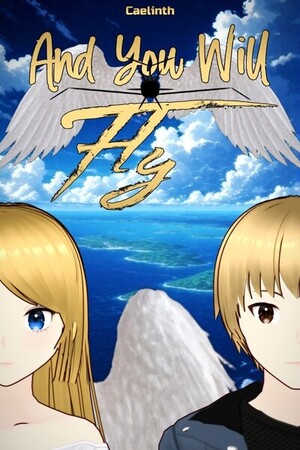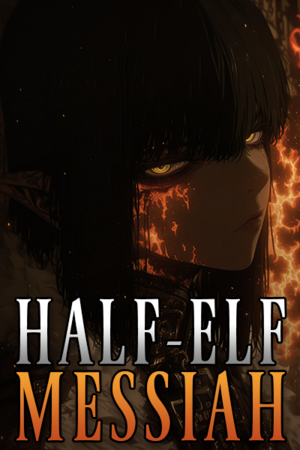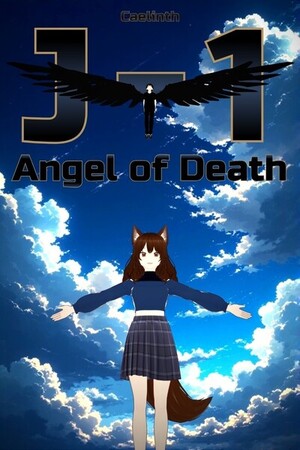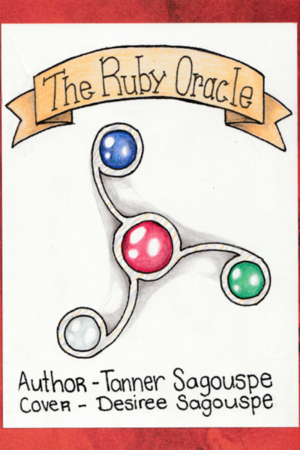Chapter 2:
A Demon Named Stolas
And You Will Fly
The sky was beautiful. Blue, deep, and full of wonder, it held the secrets and promises of millennia. Pockmarked with puffy clouds that drifted like fish in the wide ocean below, the sky was almost divine in its infinity. It was humbling to question its being - to think that one could stand on a hill, casting laments into that endless blue, while on another hill, beneath the same patch of sky, a couple might be laughing and talking about their future.
Yes, he thought, the sky is amazing.
Through the curved glass canopy, he gazed into it - that vast, eternal expanse that shielded him and yet threatened to devour him whole. The wind outside howled against the airframe, furious and hungry, waiting for a single crack in the seal to rip him apart.
His hands rested lightly on the stick and throttle - delicate, precise, and ready to leap into action at the faintest disturbance. His ears, muffled beneath the padded headset, filtered the layered symphony of flight: the constant drone of the twin contra-rotating propellers, the faint whine of the electric drive in the nose, the occasional pop of pressure as the air thinned.
His deep brown eyes, sharp and restless, flicked between the endless blue and the instruments arrayed before him. They seemed alive, each needle pulsing in its own rhythm, each dial whispering a different truth about his machine.
He was lean, almost frail to the untrained eye, but every inch of him was built by flight. His arms were wiry and quick, his grip steady. His legs, braced against the rudder bar, bore the quiet strength of someone who had spent years dancing with gravity. His face was fair, his expression calm - a boyish stillness framed by sun-bleached blonde hair that shimmered like gold beneath the sunlight.
The seat beneath him had molded to his shape over time. Nearly a thousand hours in that cockpit had done what no craftsman could. Around him, the cabin was tight - but to him, it was home. The faint smell of ozone and warm metal was as comforting as a hearth.
Behind him sat an empty seat, meant for a navigator. He’d never needed one. Flying alone meant freedom - and freedom meant silence. Another set of eyes might have been useful, but another mouth could just as easily betray him.
He looked to the wings. Six meters on either side, shaped like a gull’s - unconventional, painfully difficult to build, and with little aerodynamic justification. They rose gently from the root before dipping down again near the tips, giving the silhouette of a predator in flight. Combined with the tall, blade-like tail and the upward-angled stabilizers jutting from its center, the aircraft looked almost alive. From the right angle, its profile resembled horns sprouting from the cockpit itself - the unmistakable shape of a demon.
And demon it was. Painted in matte night-black, the aircraft seemed to swallow the light around it. The nose - slightly tapered and heavy with power - housed the world’s most advanced electric engine and a transmission that bordered on science fiction. Its frame, built from a newly developed alloy, was stronger and lighter than anything before it.
It was called the Feiwin R-12 Afreet.
A reconnaissance machine. Sleek, fast, amphibious - a weapon of tomorrow among the relics of fuel and canvas. Within its wings and belly hid both wheels and floats, the latter drawing charge from seawater itself. As long as there was ocean, it could fly.
While other aircraft crawled back to base to refuel, the Afreet could vanish into the horizon for days, its range limited only by its pilot’s hunger. Fully stocked, it carried weeks’ worth of rations and ammunition enough to drown the sky in fire. And still, despite the weight, it could climb to blackout altitude and dance through the air with impossible grace.
He loved this machine.
He loved the sky - the duels it offered, the silence it held, the life it could give and the life it could take.
He loved it all.
And his name was Mizuto.
Mizuto’s hands moved deftly as he banked his bird, bringing it in a wide arc over a scatter of small islands below. A glance told him everything he needed to know - uninhabited. No military presence, no signs of civilization; too small for more than scrub and seabirds. He sighed inwardly. Two days of flying for something that the navy could have checked in an afternoon. But it was his job. If ordered to catalogue empty rocks, he would. If ordered to strafe housing, to peel roofs open with fire and chase people into the dust, he would. If ordered to ram his beautiful machine into an enemy carrier, he would. It was in his blood.
He wanted nothing more than to make the enemy pay for what they’d taken from him. If he was honest, all that was left of him, properly, was his plane - his Stolas. Stolas was everything. He hated landing to rearm and restock because each stop meant leaving Stolas behind. That was one reason he chose recon: long flights meant long hours with the only thing he trusted to be constant.
Recon should have meant less fighting. Mizuto never read the memo. He usually returned to base with most of his ammunition spent and a handful more names on a tally no one asked to see. Gun cameras confirmed his kills; nobody denied his ability. They did, however, question his sanity. He knew he wasn’t whole. He knew the war had hollowed him. But when the world narrowed to the hum of propellers and the small, faithful rectangle of glass in front of him, all he could do was fly. So he flew, and he feared the day the war would end - when he’d be left with nothing to aim at and nowhere to put the restlessness.
He circled the islands again, easing the stick as he closed the loop. The altimeter wound down. If he’d come this far he might as well do the job properly, he decided. His eyes flicked across the instruments and paused on the ammunition counter: two thousand, three hundred and thirty-six rounds left out of four thousand. For a young man halfway through a long run, he was doing well.
The ocean drew closer and he levelled out, skimming the waves as the islands slid beneath him. The radio offered nothing but blank static; distant gulls would have made more conversation. He banked over the first island to take it in properly - sand, scrub, a little pool of rock. No movement. Nothing.
Then he saw white.
White was uncommon here. Mostly it meant foam on the waves or a gull’s wings. This was different, stark against the tan of the beach, lying in a small crater near the shore. He squinted; from this height it looked like a sheet, crumpled and left to the wind. He eased the throttle and came around again, lower.
Closer, he saw two objects in the sand: one a spread of pale material, the other a body. The pale spread had peaks and ridges, like a tarp pegged down - only it was feathered. Wings. Large, white, and feathered.
His breath hitched. A body lay face-down in the crater, fair-skinned, hair the colour of sun-bleached straw, a simple white summer dress plastered to sand. One wing was bent at an ugly angle, feathers splayed like paper; the other lay undisturbed, splayed natural and beautiful. Mizuto felt the world tilt a fraction. Angels were myth. They were stories old men told to keep the dark from children. And yet here - impossibly - was one, or something like one, collapsed on a tiny island under a sky he thought he knew.
A dozen options flashed through him: leave and pretend he’d seen nothing; land and risk a trap; shoot and resolve it in a single cold action. He crossed off firing immediately. His rational brain urged him to mark the co-ordinates and fly on; leave the strange thing to whatever it might be. But something else - something he couldn’t name - pulled at him.
He circled. Once, twice, three times, slow enough to tempt any lurking ambush to reveal itself. He scanned for camouflaged gun emplacements and listened for the signal of a well-hidden radio. Nothing moved. No reply. The static in his headset felt thicker than air.
He circled a final time, then reached for a lever with a yellow, ball-topped handle and dragged it back until it lined up with three white symbols: “30°.”




Please sign in to leave a comment.